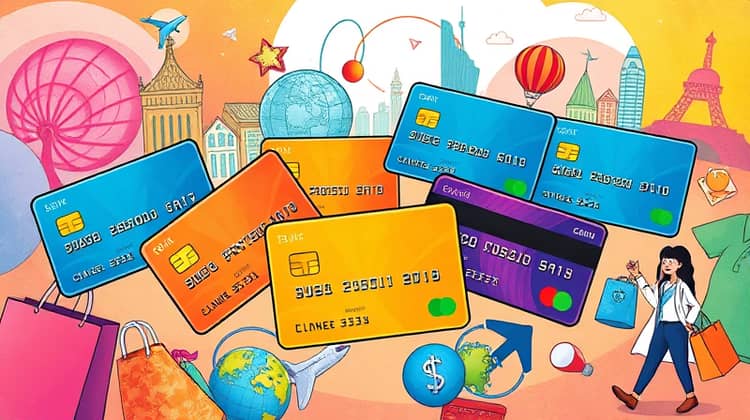As consumers, we often find ourselves evaluated by our financial habits, and one of the significant pieces of this puzzle is our credit card. An effective credit card can significantly enhance your financial management capabilities, reward you for spending, and provide you with safety when making purchases. However, as your financial situation evolves, it may become evident that your current credit card is no longer serving your best interests. This article will guide you through the steps to upgrade your credit card and the considerations that come with the process.
Upgrading your credit card involves understanding not just your financial habits but also the broader landscape of card offerings available today. With new cards frequently entering the market, combining your needs with the right features could save you money and help you earn more rewards. This means evaluating current expenses, desired benefits, and opportunities for financial flexibility.
The objective here is to ensure that your new credit card aligns more closely with your financial goals, providing added value and enhancing your experience in managing money. Whether it's cash back, travel rewards, or improved interest rates, upgrading your credit card can be the key to unlocking a better financial future.
Why Upgrade Your Credit Card?

Credit cards are neither one-size-fits-all nor static products. They can change based on your lifestyle, spending habits, and financial goals. Therefore, as life events occur—such as starting a new job, moving to a new city, or having a growing family—your credit card may need to adapt to support these milestones. An upgrade can help ensure that you have access to more valuable features, rewards, and perks that suit your current situation.
Over time, credit card companies continually launch new products with better terms and benefits. These may include lower interest rates, enhanced rewards programs, or added benefits like travel insurance, cash back on groceries, or special discounts for various services. If you are not reviewing these options regularly, you could miss out on a card that better suits your financial lifestyle.
Moreover, upgrading can greatly enhance your credit health. Using a credit card that offers a higher credit limit can improve your credit utilization ratio, positively affecting your credit score. The right card can also provide you incentives to spend responsibly, thus encouraging better financial habits. This multifaceted approach to credit upgrades can lead to numerous financial benefits.
- Access to better rewards programs
- Improved interest rates
- Additional benefits like purchase protection
Signs That It’s Time to Upgrade

Recognizing when it’s time to upgrade your credit card is critical for your financial health. If you find that your current card lacks the rewards or benefits you desire or if it comes with annual fees that don’t match the perks it offers, it may be a clear indication to look for a better option. In addition, if your spending habits have changed—perhaps you’re now traveling frequently or making more online purchases—it could be a signal to seek a card that better serves those new habits.
Other signs include not maximizing the rewards available with your current card. Many cards come with bonuses for specific categories; if you are not utilizing these categories, you may miss earning potential rewards. If you've also experienced a change in your credit score, possibly improving due to responsible debt management, this may enable you to qualify for cards with better offerings. By being proactive, you can continually optimize your credit card choice.
- Your spending habits have changed
- You are paying high interest or annual fees
- You aren't taking advantage of your current rewards
Ultimately, keeping an eye out for the signs that it’s time to upgrade can lead you to better financial management and greater benefits from your credit card usage.
Research Your Options

Once you have identified that an upgrade is necessary, the next pivotal step is conducting thorough research into your options. Take time to compare different credit cards regarding their features, rewards, interest rates, and fees. Reading consumer reviews and financial blogs can also provide insights into which cards have the best reputation and benefits.
Additionally, consider your lifestyle preferences and how they tie into your finances. If you travel frequently, look into travel credit cards that offer points and travel insurance. If you primarily use your card for everyday purchases, explore options that maximize cashback in categories where you spend the most. Researching ahead enables you to make informed decisions that best align with your financial goals.
Check Your Credit Score

Consulting your credit score is crucial before applying for a new credit card. Lenders utilize your credit score to determine your eligibility for better card offers and the interest rates that might accompany them. Knowing your score gives you a clear idea of the types of cards you may be accepted for and helps target your search effectively.
If your score has improved, it might give you access to premium cards with enhanced benefits you may not have qualified for in the past. Conversely, if your score has dropped, you can work on strengthening it before you apply.
- Access to premium cards
- Potentially lower interest rates
- You know your financial standing
Understanding your credit score is a proactive approach that can ultimately lead to better financial decisions and savings.
Understand the Benefits

When upgrading your credit card, it's vital to understand the benefits that come with potential new options. Different cards provide various perks such as cashback, travel points, purchase protection, and more. Understanding these benefits can help you choose a card that aligns with your spending habits and financial goals.
- Cashback on purchases
- Travel rewards and discounts
- Extended warranty on purchases
Consider the Costs

However, with benefits often come costs. Before upgrading your card, ensure you take the time to analyze any potential fees associated with the new card. Cards vary in terms of annual fees, interest rates, and foreign transaction fees, and it's crucial to choose a card that not only offers the rewards you need but is also financially feasible over time.
- Annual fees
- Foreign transaction fees
- Interest rates
How to Upgrade Your Credit Card

Upgrading your credit card can be a straightforward process, but it does require some attention to detail and proper timing. Make sure you are ready to transition and have all the necessary information and documentation on hand when applying for the new card.
- Assess your current spending habits and needs.
- Research and compare different credit card offers.
- Apply for the new card ensuring it fits your financial goals.
Once you have completed the process, regularly review your spending and the benefits you are receiving. This will confirm that your upgrade was effective and may even lead you to future improvements down the line. Proactive credit management is key to achieving long-term financial success.














